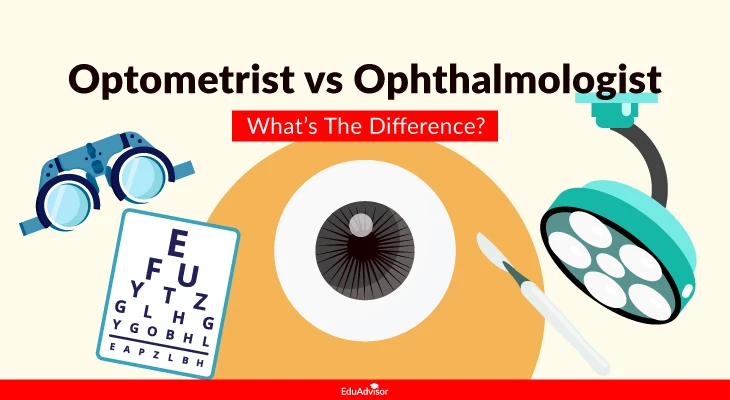ACCA vs Accounting Degree: Which Course Should You Take?
Should you pursue an ACCA qualification or an Accounting Degree? Here are the pros and cons of both courses to help you decide which is the best for you.
Updated 13 May 2023

If you’re business-minded and keen on crunching numbers, an accounting career might be in the cards for you!
However, there are a few ways to getting there. One is via the Association of Chartered Certified Accountants (ACCA) — a professional accounting qualification that will enable you to be called a “Chartered Certified Accountant”. Another is by pursuing a Degree in Accounting.
So, which should you choose?
In this article, we address some of your burning questions to help you compare these 2 courses and decide which is the best fit for you. Let’s go!
#1. What’s the main difference?
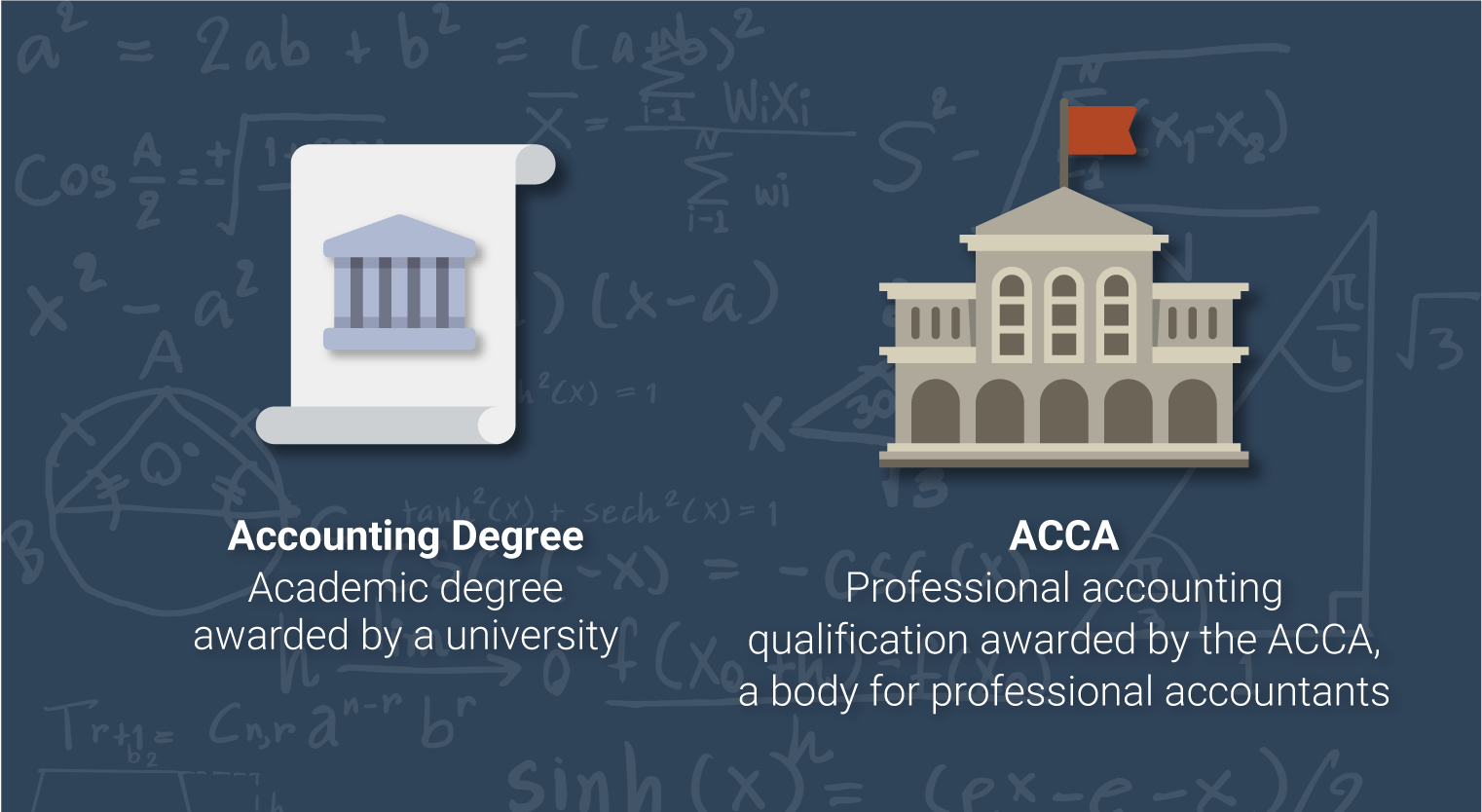
Accounting Degree:
This is an academic degree awarded by a university.
ACCA:
This is a professional accounting qualification awarded by the ACCA, a body for professional accountants.
What should you consider?
An Accounting Degree is similar to other undergraduate degrees and equips you with academic knowledge in your chosen field. ACCA, on the other hand, is a professional accounting qualification and is not recognised as a degree.
Study material aside (see point #2), degrees are still well-regarded and relevant in today’s job market. In addition, if you are financially tight, degrees are covered under PTPTN, while professional courses are only covered in public universities.
#2. What will you study?
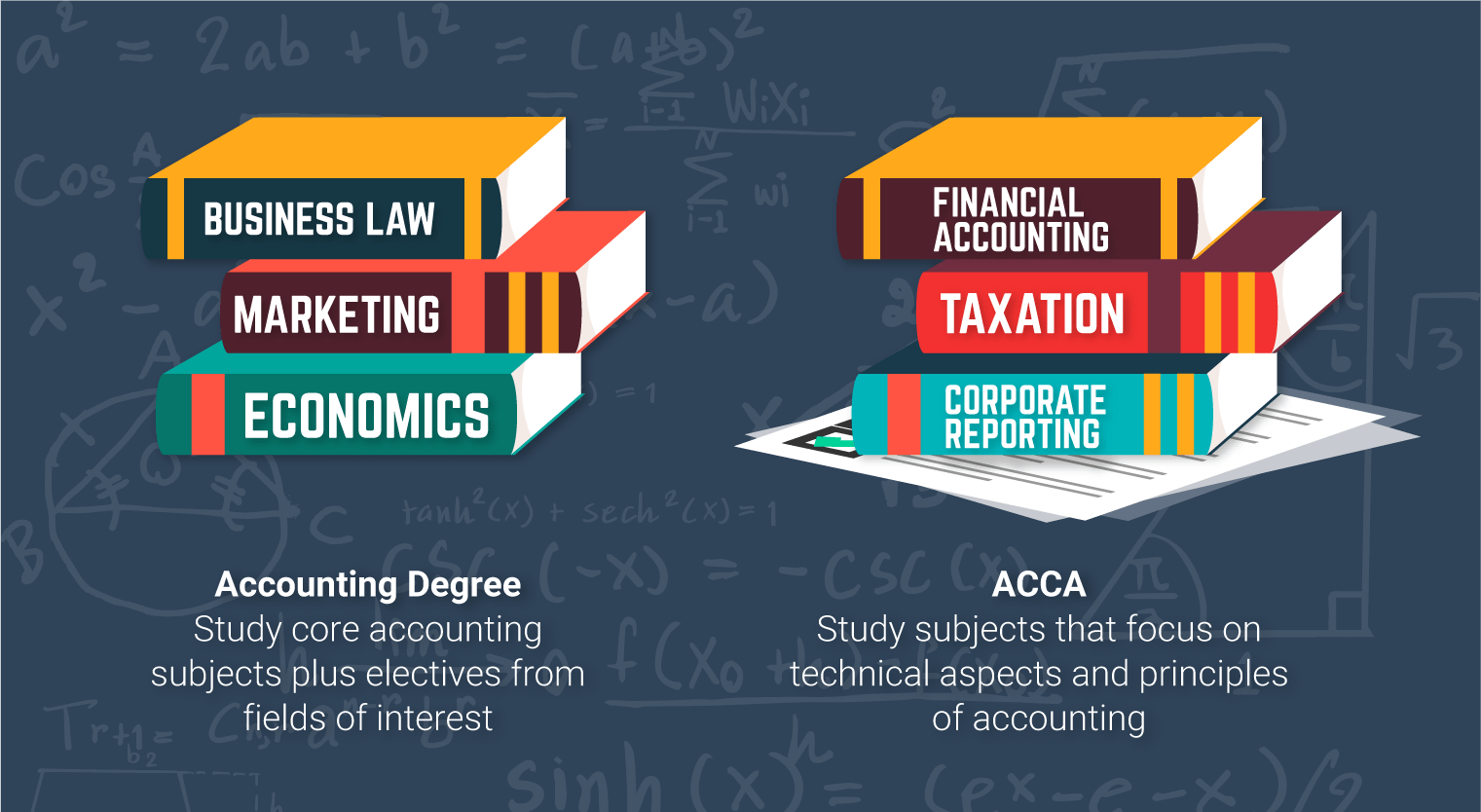
Accounting Degree:
Consists of a wide breadth of subjects as the course structure is made up of core accounting subjects and electives from relevant fields.
ACCA:
Exposes you to subjects that focus on technical aspects and principles of accounting that are required of a professional accountant.
What should you consider?
An Accounting Degree consists of core and elective subjects, together with research work and assignments, all which are meant to give you a more well-rounded experience.
Core subjects are mostly made up of accounting subjects such as Financial Accounting, Auditing and Taxation whilst electives include subjects from related fields (e.g. Business Management, Entrepreneurship, Marketing, etc.) which you can mix and match based on your interests. Add in group assignments and your undergraduate thesis, and you can see how a degree can be a holistic experience.
In contrast, ACCA focuses on the technical areas of accounting, giving you more specialised knowledge about accounting. The syllabus covers advanced accounting techniques, calculations and manipulations in greater detail compared to a degree, especially at the Professional level.
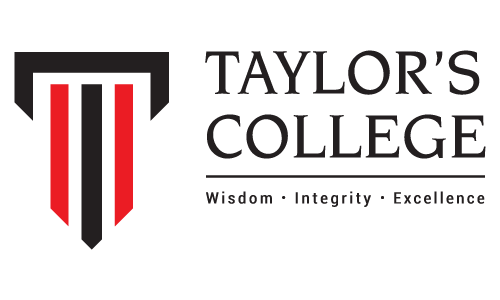
Taylor's College
Association of Chartered Certified Accountants (ACCA)
✓Platinum-status Approved Learning Partner of ACCA
#3. Which is more difficult?
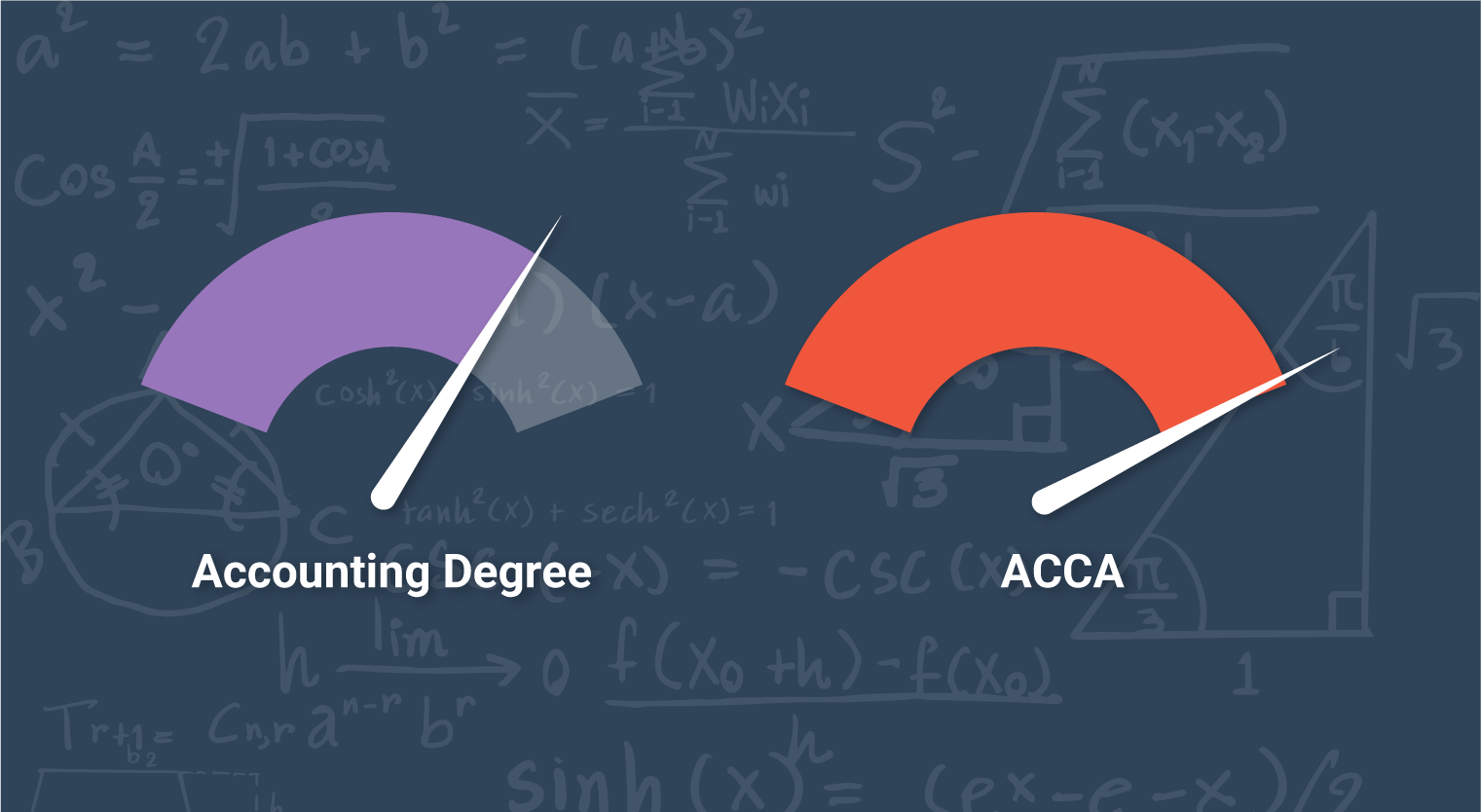
Accounting Degree:
Typically considered to be an easier route than ACCA as there is a gradual progression of difficulty throughout your 3 years of study. Additionally, it is not 100% exam-based.
ACCA:
Known to be more challenging as it combines the difficulty levels of a Bachelor’s Degree and Master’s Degree into one qualification.
What should you consider?
As with any degree programme, an Accounting Degree requires you to juggle assignments, group work and class tests on top of your final exams. You’ll need to have good time management and study consistently to be on top of your game.
On the other hand, the ACCA qualification is known to be tough as the fundamental and professional levels are vastly different. Additionally, the subject material becomes exponentially more difficult as you move from one to the other.

#4. Which is faster?
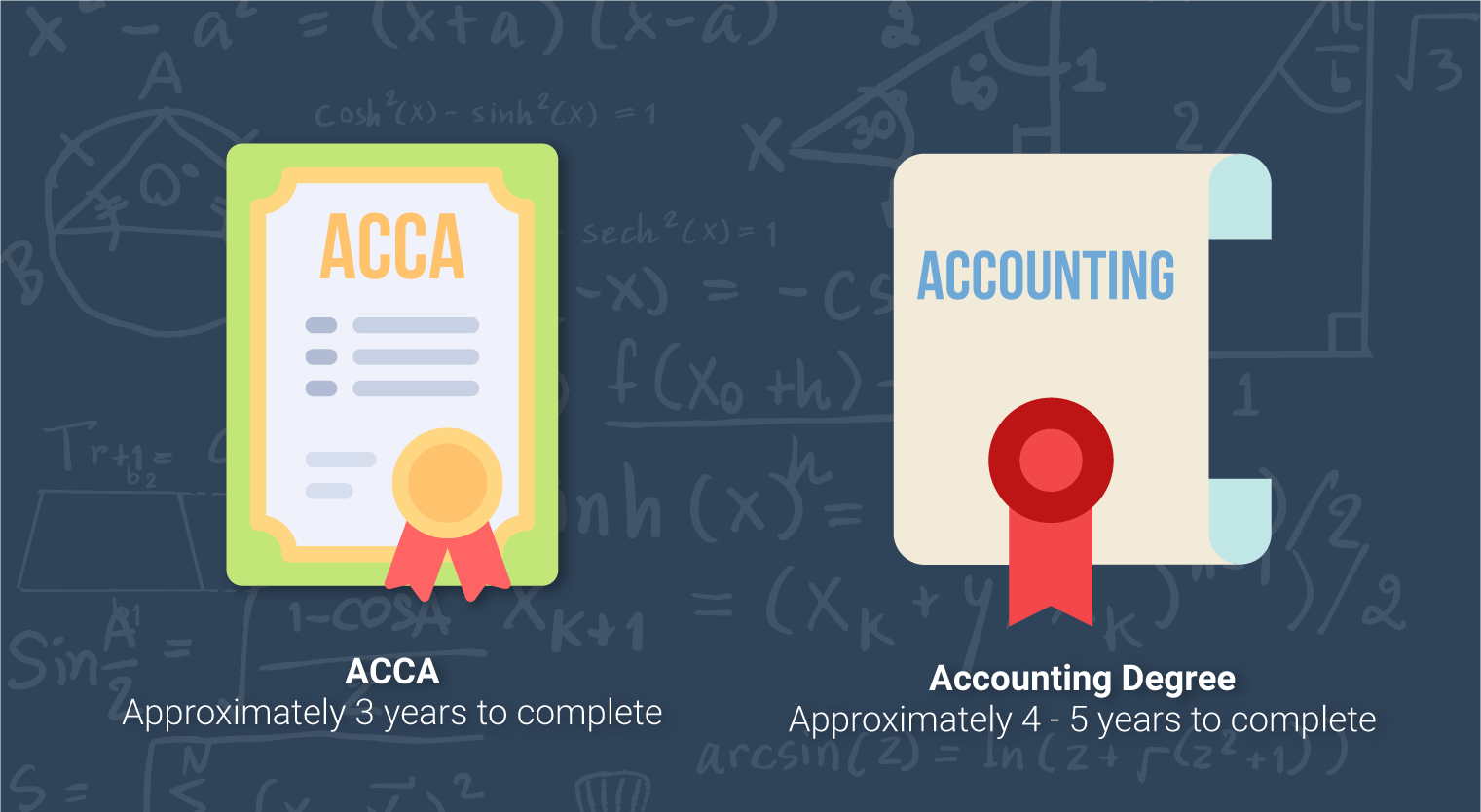
Accounting Degree:
Approximately 4-5 years to complete from SPM level.
ACCA:
Approximately 3 years upon completing SPM.
What should you consider?
If you’re in a hurry to enter the workforce, the ACCA qualification is the fastest route. You can take the Certified Accounting Technician (CAT) right after SPM, which takes 1 year, and then complete the ACCA qualification in as quickly as 2 years (provided you pass all the papers, of course!).
Should you choose to take an Accounting Degree, however, you must complete a pre-university qualification (e.g. A-Level, Foundation in Arts, etc.) first, which can take anywhere between 1-2 years. Subsequently, you can proceed to do a Degree in Accounting, which will take 3 years, making the total study duration to be 4-5 years from SPM.
Apply for university with EduAdvisor
Secure scholarships and more when you apply to any of our 100+ partner universities.
Start now#5. Which is cheaper?
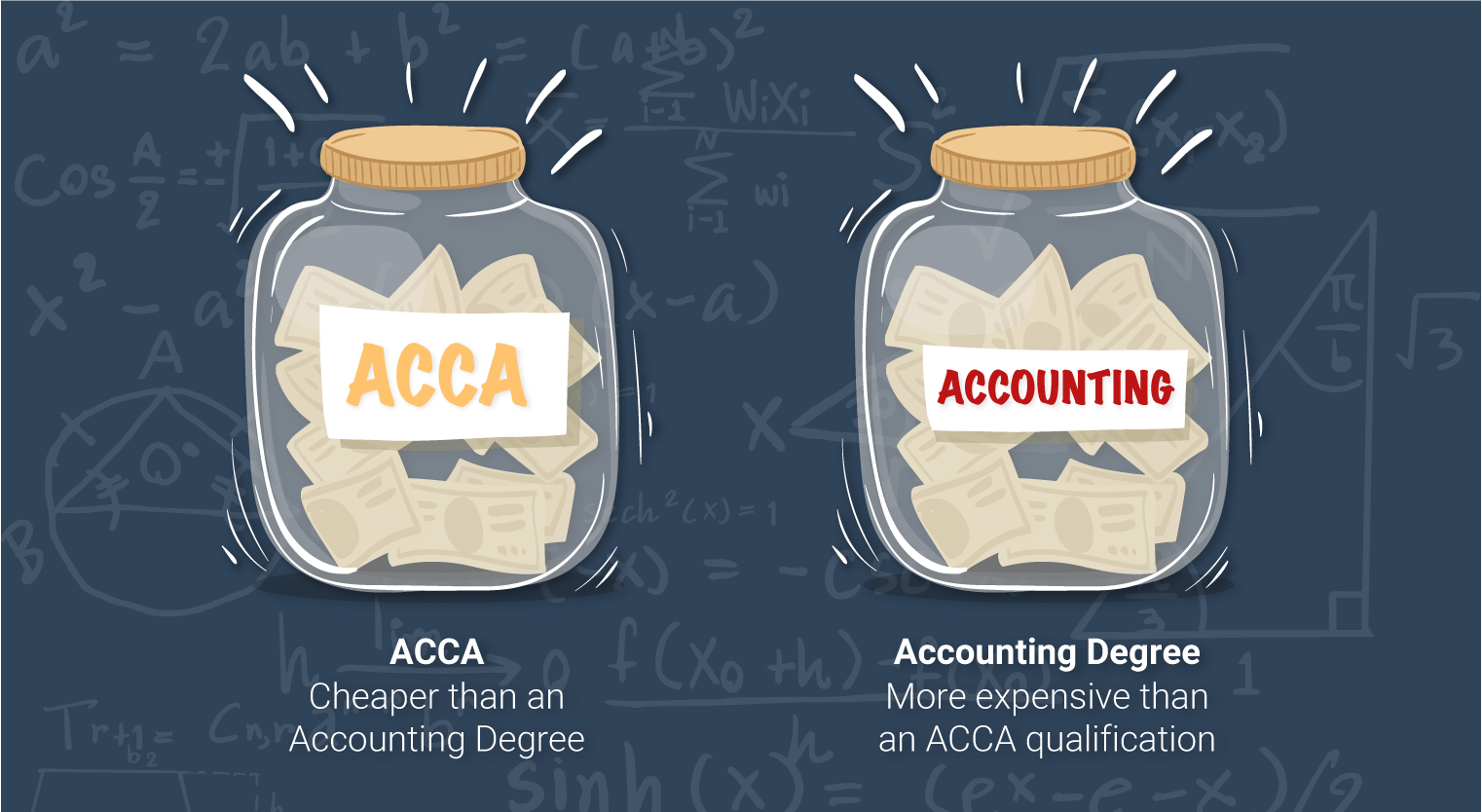
Accounting Degree:
Fees can range from RM47,000 - RM100,000.
ACCA:
Fees can range from RM10,000 - RM 32,000.
What should you consider?
If cost is a major consideration for you, you’d be pleased to know that ACCA is the cheaper option compared to an Accounting Degree. The cheapest Accounting Degree is approximately RM47,000 while studying ACCA can be as low as RM10,000.
Not only that, you can take the ACCA qualification privately without going through a college or university, choosing to self-study instead. This will lower your costs even further, as you will only be paying registration, examination and invigilation fees instead of full tuition and resource fees.
However, note that you will not be able to take a PTPTN loan to study ACCA at private institutions, while you can for a degree.

Taylor's College
Association of Chartered Certified Accountants (ACCA)
✓Platinum-status Approved Learning Partner of ACCA
#6. Are they both equally recognised?
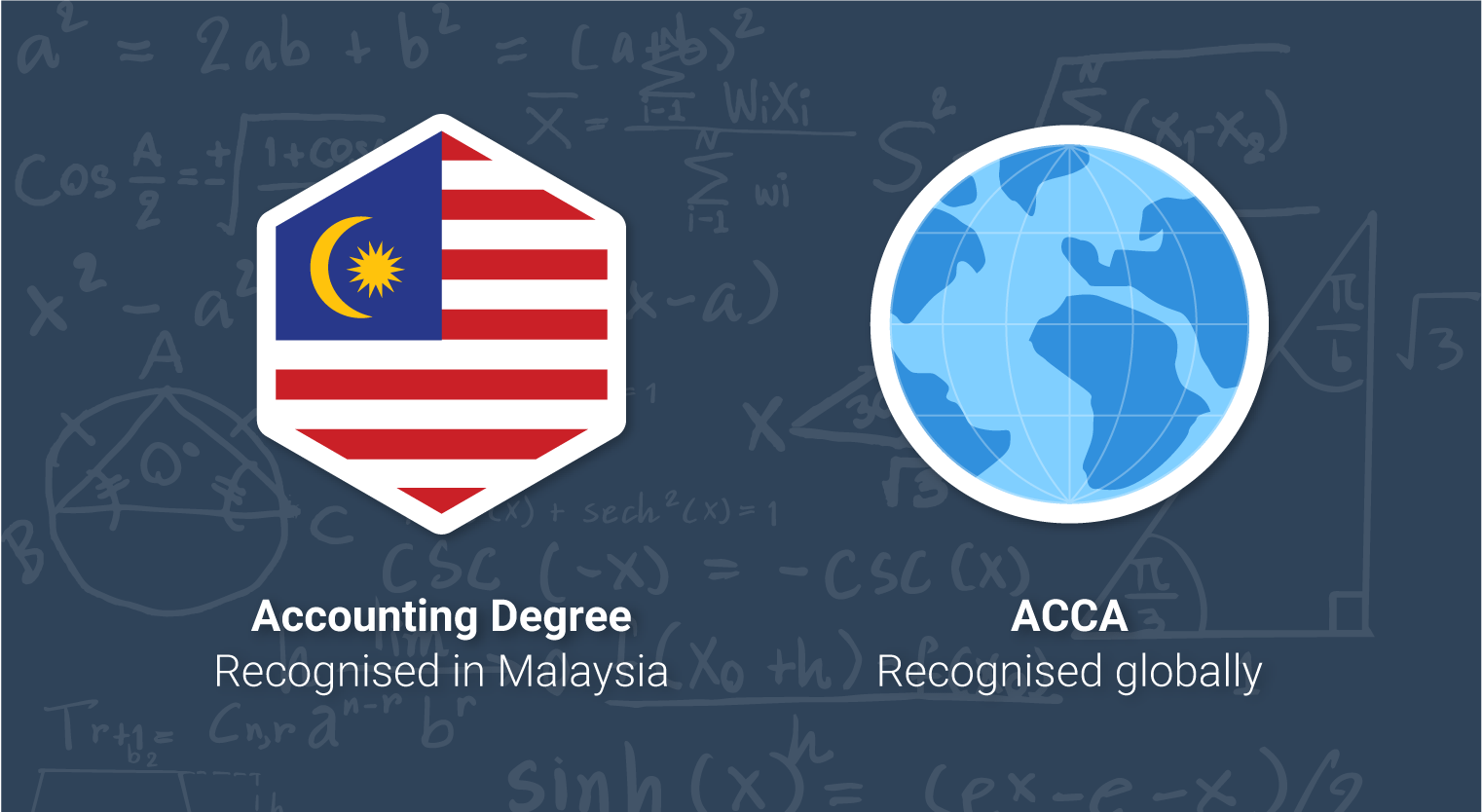
Accounting Degree:
Recognised in Malaysia but may not be recognised internationally, depending on the university.
ACCA:
Recognised in Malaysia and internationally.
What should you consider?
While both courses are recognised by the Malaysian Institute of Accountants, which is necessary to qualify and work as a professional accountant in Malaysia, an added advantage of the ACCA qualification is that it is recognised globally by 181 countries, opening the doors for you to work abroad.
In comparison, the recognition of your Accounting Degree will depend on the awarding university.

#7. What are your career options?
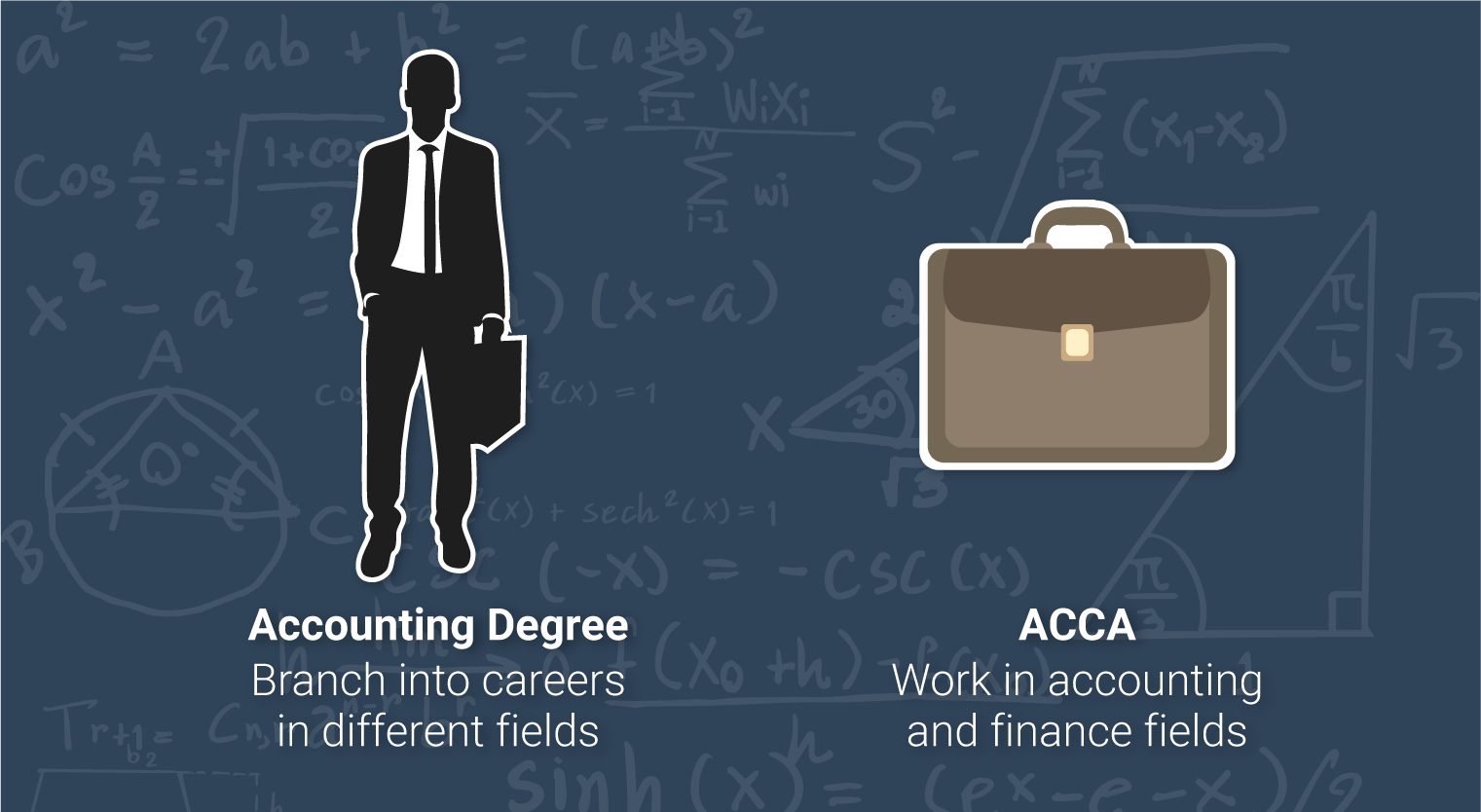
Accounting Degree:
You can branch into careers both in and outside the accountancy field.
ACCA:
Most ACCA members work in accounting and finance fields.
What should you consider?
If you’re keen to venture into fields outside accounting in the future, an Accounting Degree might be your best bet. This certification will open you up to other related fields, such as Real Estate, Market Research and Media and Advertising.
On the other hand, since the ACCA qualification arms candidates with professional skills, you would be in the best position to pursue a career directly related to accounting. Moreover, top accounting firms (known as the Big Four) require their employees to have a professional qualification.
Alternatively, you may complete your professional qualification after your degree. If you’re lucky and talented enough to work for one of the Big Four companies, you’ll find that they may even sponsor you to pursue a professional qualification, such as the ACCA, in exchange for a bond to the company. Additionally, an Accounting Degree entitles you to exemptions for up to 9 of the 14 ACCA papers.
In conclusion, neither course is better than the other. Your choice should ultimately depend on how long you’re willing to set aside for your studies, your budget and your career choice in the future. Nevertheless, we hope we’ve given you more insight into the pros and cons of each course to help you make the best decision! All the best!




